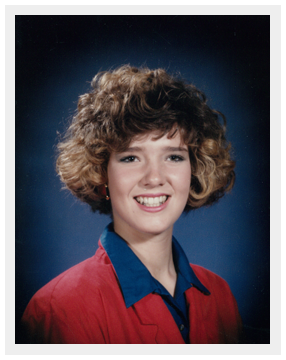#ThankATeacher: My First Literary Matchmaker
Laura DeMoss |
May 6, 2015
 In celebration of Teacher Appreciation Week (May 4 – 8), we’re saying ‘thank you’ to the extraordinary people who work so hard to inspire student success, even beyond the classroom walls. We asked NMSI team members to reflect on some of the amazing teachers who have made a difference in their lives. Today, our English director Michelle Stie tells us about Mr. Simmons, the teacher who sparked her love of literature. Throughout the week, we’ll continue to tell our stories and we invite you to add your own in the comments section below.
In celebration of Teacher Appreciation Week (May 4 – 8), we’re saying ‘thank you’ to the extraordinary people who work so hard to inspire student success, even beyond the classroom walls. We asked NMSI team members to reflect on some of the amazing teachers who have made a difference in their lives. Today, our English director Michelle Stie tells us about Mr. Simmons, the teacher who sparked her love of literature. Throughout the week, we’ll continue to tell our stories and we invite you to add your own in the comments section below.
All English teachers have an origin story in which we can recount the moment we knew we had to read, discuss and think about books for a living. My story began my junior year in high school, during a British literature class taught by Dan Simmons.
In 1987, I was, admittedly, a distracted student, more interested in flirting with the boy sitting behind me than in parsing difficult prose. However, like all great teachers, Mr. Simmons gently, but firmly, steered me toward what would become my life’s passion: books. He was my first literary matchmaker, introducing me to the novels of the Brontë sisters because he anticipated that the brooding Mr. Rochester and the tortured Heathcliff would appeal to my romantic heart. Mr. Simmons frequently pressed novels into my hand because he knew they would speak to me, and through his influence I learned to weep for Tess of the D’Urbervilles, cheer for Elizabeth Bennett and to despair with Marlow as he journeyed into his heart of darkness. I remember the thrill of listening to Mr. Simmons recite Macbeth’s “Tomorrow, and tomorrow, and tomorrow” soliloquy, and I still am moved by the weariness and sadness of these lines almost three decades later.
A dapper and soft-spoken man, Mr. Simmons loomed large in the classroom and demanded much of his students. He told us that the study of literature and art required disciplined thinking, which he modeled for us in every discussion he led and in every written comment he made on our papers. However, I remember Mr. Simmons not because he made me a better writer or a better reader of literature, although he is responsible for both these things. I remember Mr. Simmons because he was the first teacher who helped me connect the books I read to the values I hold in my life. There is a reason I had Shakespeare’s sonnets read at my wedding and that I seek out the Russian novelists during my lowest moments; that I recited celebratory Psalms when I saw my daughter for the first time and that I now eagerly press into her hands the novels by Harper Lee, Toni Morrison and Sherman Alexie, so that she, too, can swoon, cheer and mourn with the characters in their powerful and beautiful books.
Thank you, Mr. Simmons, for showing me—and scores of other students—the rewards inherent in reading great literature. I don’t know how many other students you inspired to take up the mantle of teaching, but know that for each of the 18 years I was in the classroom, I recited Macbeth’s soliloquy for my students in your honor.